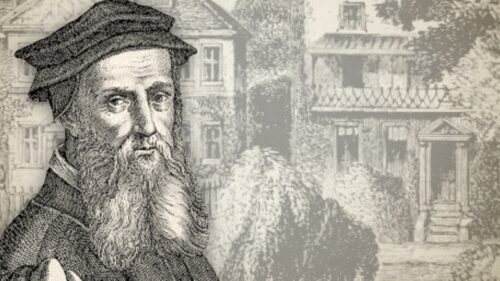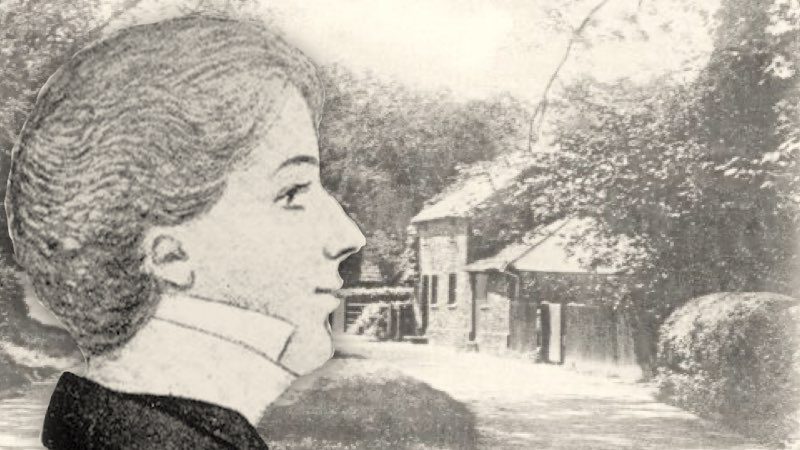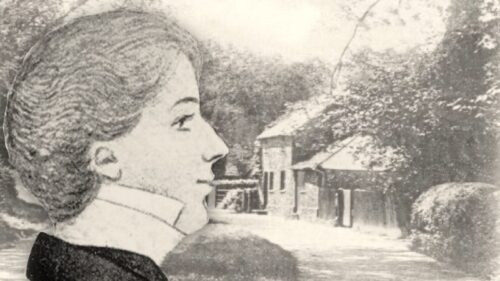-
Maurice Roberts And The Free Offer Hoax
The so-called Banner of Truth’s witch-hunt against alleged Hyper-Calvinists continues with Maurice Roberts quite deceptive apology for their new, radical theology hidden behind the mask of ‘The Free Offer of the Gospel’ (Issue 503-4). Pastor Roberts has picked out all the raisins and nuts he could find in the new BOT cake, seeking to lure traditional BOT readers away from the old paths by these tempting morsels. He has, however, offered us nothing of the seasoning of gall and bitter herbs which makes his cake the most stomach-turning culinary event since the counter-reformation opened their evil-smelling kitchen as purveyors of false food. A little of this comes through in Roberts’ accusing all those who disagree with him of being Hyper-Calvinists, but such tasteless taunts are…
-
Gospel Light Or Gospel-Lite?
Only a crook or a clown offers what he cannot deliver. So which one is God when freewill preachers tell us He desires everyone to be saved and freely, sincerely and genuinely offers salvation to all men and women? Can God deliver upon such a promise? Not if there is a definite number of individuals in the election of grace. Not if there is a limitation in the number of sinners for whom the Lord Jesus Christ died on the cross. Not if the quickening, regenerating, converting work of God the Holy Ghost is restricted only to those chosen in eternity and redeemed by the precious blood of Christ. So which one is it? Is God a crook, deceiving men and women, pretending to hold…
-
William Carey: Using God’s Means to Convert the People of India (Part 2)
Part Two: The Mission Prospers The mission at Serampore prospered and spread. Carey was given the most prominent building in the city for the church in which he preached for the next thirty-four years. The town of Serampore, too, prospered as it proved an asylum of peace for fugitives from the Americo-Franco-British wars and it persuaded many wealthy investors to settle there. More missionaries were urgently needed as Brunsdon soon died of a liver complaint. Fountain, who was doing pioneer work at Dinapoor, also died after a short illness. Thomas rejoined the mission but became insane and soon died. The missionaries were able to purchase a very large house in the middle of the town with two acres of garden from the Governor’s nephew for…
-
William Carey: Using God’s Means to Convert the People of India (Part 1)
My reason for publishing this account of William Carey and his Indian mission on my website. On 18-21 February, 2010 a conference will be held at Muscle Shoals, Alabama under the theme ‘The Quagmire of Hyper-Calvinism’. The key speaker will be Dr. Michael Haykin who will lecture on Andrew Fuller as a missionary pioneer. The myth that Andrew Fuller pioneered a missionary movement is superstitiously believed by Dr. Haykin and his circle but the Baptist Missionary Society Fuller helped to found came at the rear end of a long line of Christian missionary organisations whether church based or, like the BMS, a para-church movement. Andrew Fuller was not the instigator of this missionary society but William Carey who urged the Baptists to act as other…
-
The Learned And Great Find The Doctrines Of Grace Great Foolishness
October 28th, 1830 My dear Brother, I arrived safely at Sutton on the Saturday afternoon. I saw Mr. de Merveilleux, and had a little conversation with him. I believe him to be a lover of gospel truth, and I hope that you will call upon him when you go to Stamford. I met a few friends at his house, and spoke a few words to them. They seemed very desirous to hear, and, I trust, are spiritually hungering after the bread of life. My friend Philpot is ill, and not able to preach. He is coming to see me next week. He is a dear child of God. I shall be glad to hear in your next letter what advances you are making in religion.…
-
Arminians And Mongrel Calvinists
I recollect once asking an Arminian how a soul must be saved; to which he replied, “By the blood of Jesus Christ.” I said, “Do you believe in that Scripture passage, “The blood of Jesus Christ cleanseth us from all sin?“ He replied, “I do.” “Do you believe that the blood and righteousness of the Lord Jesus Christ is sufficient alone of itself to save a soul from hell?” He said, “I do.” “Then what are sinners sent to hell for?” To which he replied, “For rejecting the Saviour, to be sure.” I said, “Is rejecting the Saviour a sin?” He replied, “Yes.” “Well, then; if the blood of Jesus Christ cleanseth us from all sin, that sin of rejecting the Saviour is among the…










